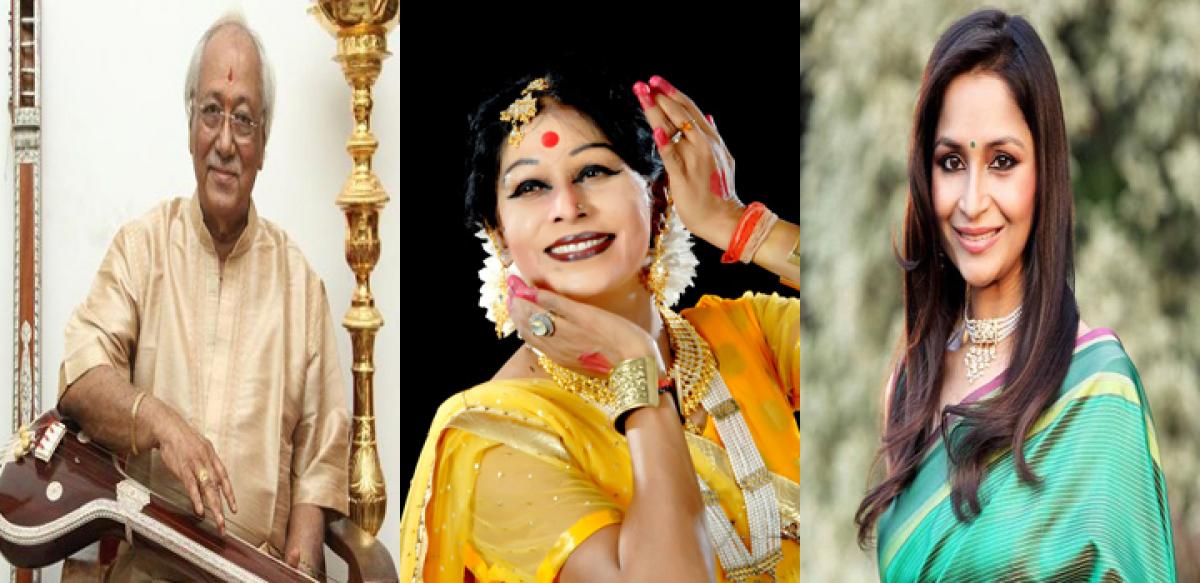Categorisation or discrimination?

Babudom’, the term used to define the writ of the straight-faced, empathy lacking, rule quoting face of administration in India, has become a larger than life presence over the years; building on the steel frame that defined it since the British days.
Babudom’, the term used to define the writ of the straight-faced, empathy lacking, rule quoting face of administration in India, has become a larger than life presence over the years; building on the steel frame that defined it since the British days.
Is the decision of the Ministry of Culture to create a cultural map of India with a huge database of artistes graded by a committee of bureaucrats, going to make them even more powerful? Will it bring into their fold legitimately what remained a tacit and unsaid agreement in the past?
Unfortunately, the answer is in the affirmative. Although the ministry has stated that the new system was being introduced with the principle of minimising nepotism and reducing the dominance of cliques, there is a lingering fear among the literati that these will only get stronger and prove counter-productive to the avowed purpose.
OPW is the new three-fold system of grading artistes and writers in the country, who will be evaluated by a high-powered committee of bureaucrats and selected artistes, as opposed to the auditions by the All India Radio conducted by experts comprising ‘ A ‘ grade artistes, scholars and veterans in the field.
The three categories are O- for outstanding, P- for promising and W- for waiting, with only the first two categories eligible to represent the country at various cultural festivals abroad. The committee is all set to fix an honorarium for the artiste based on their grading to eliminate differences in the remuneration paid for different genres of music, dance and other fine arts.
A rule stating that an artiste can participate in an event only two years after the previous performance also finds mention in the new scheme of things ostensibly to ensure that more artistes get the opportunity to represent the country on the world stage.
Architecture, sculpture, painting, handicrafts, puppetry, music, dance, theatre and writing have been mentioned in the government list and practitioners have to apply for grading by accessing the website of the Centre for cultural resources and training (CCRT) where they can fill in applications online.
The ministry of culture has already completed a pilot project of 185 of whom 46 artistes have been graded as outstanding, 112 as promising and 27 kept in the waiting category. A comprehensive directory of artistes in India is to be created in a first of its kind effort.
The grading in the pilot project though hasn’t thrown up any surprises with the names of popular and established artistes, featuring in the list of outstanding category. Eminent Kathak dancer Shovana Narayan and Padmabhushan awardee and celebrated Carnatic musician TV Gopalakrishnan, Bharatanatyam dancer Ananda Shankar Jayant and Kuchipudi exponent Deepika Reddy find mention in the 47 names listed here.
“A committee of bureaucrats would be less biased than experts and critics in the field of art and culture is notorious for jealousies and personal biases,” artistes featured in the outstanding category feel.
“Bringing in bureaucrats may not usher in changes as big names and those with political connections have always featured in most events abroad and there is no level playing field here according to those in the creative field.
The system of grading has always lacked transparency and many deserving musicians have been denied their rightful position due to petty rivalries, caste and regional feelings and the absolute power vested in the expert committee turning them blind to reality,” says a famous Carnatic musician, speaking on the condition of anonymity.
“As I checked the YouTube channel of the Ministry of Information and Broadcasting started a couple of years ago and never updated, I was surprised to discover that of the 74 music videos featured here, MS Subbalakshmi is the only artiste featured from the Carnatic fraternity, with all other names dedicated to Hindustani classical music, clearly indicating regional bias. It is unclear whether the new system will address such imbalances and introduce transparency instead of merely labelling and dividing artistes based on grades.”
With the advent of the internet and the popularity of YouTube most artistes and writers have found success independent of the grading and honour provided by the government. Reaching out to people in a world without frontiers YouTube has given identity, success, fame and wealth to many an artiste beyond the confines and limitations of the government.
So it is for writers and other artistes, who have gained recognition without state patronage. Grading, however, becomes important for those, who wish to be seen as cultural ambassadors representing their nation at prestigious platforms around the world. This may have tempted many outstanding senior artistes like TV Gopalakrishnan to submit applications for grading, once again although they are quite past the stage of grading.
The system of grading writers is another challenge altogether. That those in the creative field value freedom of expression and very often think differently from the conforming masses is no secret. How will they be graded? Will the tendency to police, monitor, ban and berate creative persons be the norm of the day?
Will this fear experienced by writers, theatre persons, stand-up comics and students under the present dispensation become a reality? Will a painter, whose creative genius escapes the notice of a conservative rule-bound bureaucrat, find himself waiting in the wings forever? With the dynamics of movement between the three categories remaining unspecified...one wonders how long it will take an artiste to move up the waiting list.
Can a promising artiste reach the outstanding category ever and in what time frame? With the move of the Ministry of Culture raising more questions than answers it remains to be seen whether culture will be free of politics or the politics of culture will prevail.
By: Aruna Ravikumar







